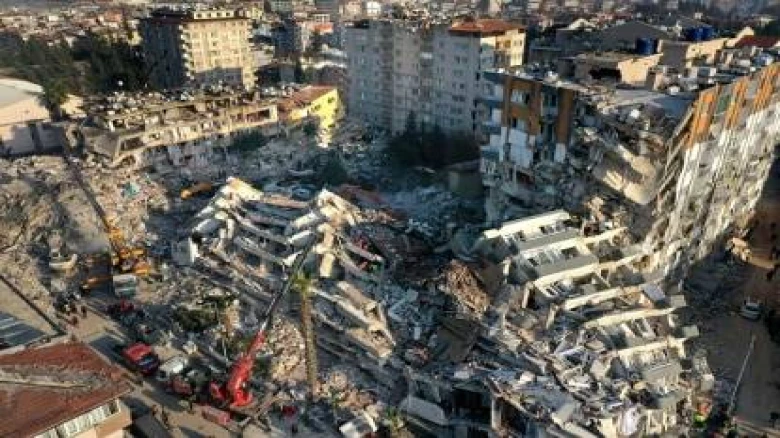Article

Earlier, Turkish President Recep Tayyip Erdogan declared a three-month state of emergency to accelerate search and rescue operations in...
Digital Desk: The death toll across Turkey and Syria following a massive earthquake on Feb. 6 surpassed 50,000 on Friday after Turkey declared more than 44,000 people died.
The Disaster and Emergency Management Authority (AFAD) stated that as of Friday night, there had been 44,218 earthquake-related fatalities in Turkey. With Syria's latest announced death toll of 5,914, the total death toll in the two countries rose to more than 50,000, according to Reuters.
Earlier, Turkish President Recep Tayyip Erdogan declared a three-month state of emergency to accelerate search and rescue operations in the quake-hit counties, as per reports.
Authorities said that more than 110,000 buildings in 11 earthquake-hit Turkish districts were either demolished or severely damaged that they need to be torn down.
According to the White Helmets, northwest Syria's civil defence organization, said about 190 people suffered different injuries in rebel-held northwest Syria, mostly cases of broken bones and bruises.
It stated that several flimsy buildings fell but that no persons was trapped under the wreckage.
Turkey is a country that is located in a seismically active zone and is prone to earthquakes. According to news reports, the most recent significant earthquake to hit Turkey took place on February 6, 2023, when two earthquakes with magnitudes of 7.7 and 7.6 that were centered in the province of Kahramanmaras were felt by 13 million people in 10 provinces, including Adana, Adiyaman, Diyarbakir, Gaziantep, Hatay, Kilis, Malatya, Osmaniye, and Sanliurfa. Syria and Lebanon, two of Turkey's neighbours, also felt the shocks.
The earthquake caused extensive damage to buildings and infrastructure in the affected areas, and over 50,000 people were killed. Rescue efforts were immediately begun, and search and rescue personnel worked frantically to identify and rescue individuals from the rubble.
Turkey has a history of earthquakes, and the government has taken steps to increase its ability to respond to and reduce the effects of these natural disasters. These steps include building earthquake-resistant structures, creating early warning systems, and putting disaster response plans into action. Notwithstanding these efforts, earthquakes continue to represent a considerable risk to the country, and continued preparedness and response activities are important.
Leave A Comment